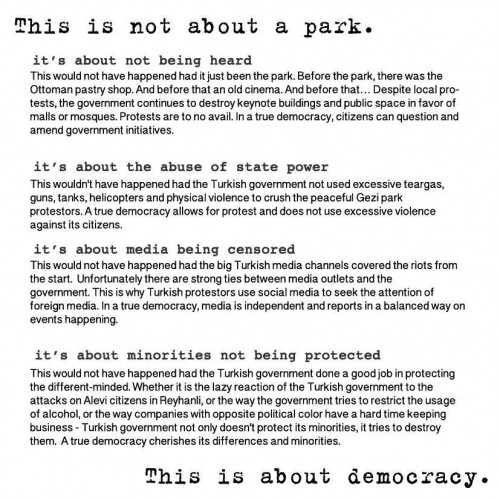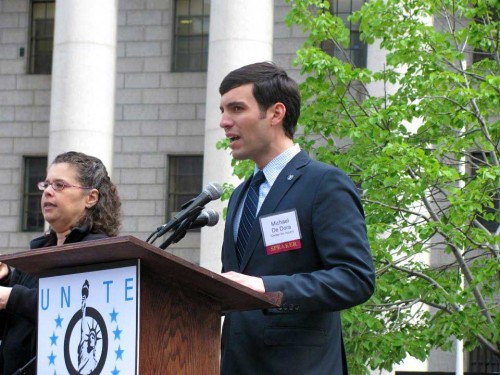Turkey has erupted in demonstrations and protests over the last few days. The precipitating event was an effort to demolish an historic town square to build commercial properties, but it seems to be an expression of long resentment over a corrupt and autocratic leadership, and the growing tension within a country that was founded as a secular nation but is facing a rising Islamist faction. What happens when you try to mix capitalism and theocracy, modernism with traditionalism? We’re finding out.
The scenes carried the symbolic weight of specific grievances: people held beers in the air, a rebuke to the recently passed law banning alcohol in public spaces; young men smashed the windshields of the bulldozers that had begun razing Taksim Square; and a red flag bearing the face of modern Turkey’s secular founder, Mustafa Kemal Ataturk, was draped over a destroyed police vehicle.
The people are more than a little annoyed with Prime Minister Recep Tayyip Erdogan.
Many of the protesters, some of whom voted for Mr. Erdogan, said his leadership had become increasingly dictatorial. In a Twitter message late Saturday, Mr. Erdogan appeared to mock the protesters, saying he could mobilize a million people to support him in Taksim Square, while putting the number of protesters at 100,000.
“When he first came to power, he was a good persuader and a good speaker,” said Serder Cilik, 32, who was sitting at a tea shop watching the chaos unfold. Mr. Cilik said he had voted for Mr. Erdogan but would never do so again.
An older man standing nearby, overhearing the conversation, yelled, “Dictator!”
Mr. Cilik, who is unemployed, continued: “He brainwashed people with religion, and that’s how he got the votes. He fooled us. He’s a liar and a dictator.”
Now it’s tear gas and bullets and angry mobs swarming the streets.
I think I love these people. 90 demonstrations in 48 cities, hundreds injured or arrested, two have been killed, all in the face of extreme police action, and they keep on fighting for what is right. They are actually standing against an increasingly authoritarian, conservative, and religious government.
I wish we Americans had that kind of courage.






